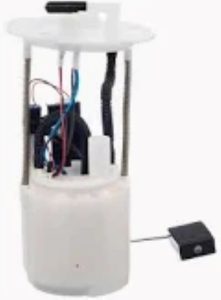Though fuel pumps are designed to cope with high RPMs, its performance and durability is determined through the design of pump as well as flow rate/pressure specification. High RPMs require more fuel for the engine to make power, causing a need for increased demand from the pump. A 6,000 RPM high-performance engine may well be consuming more than 250 liters per hour to maintain its pace. An ordinary fuel pump that is commonly used for street driving can possibly get overwhelmed by this required percentage, and if not supplied enough pressure then the tune will go lean, or could misfire under full load at higher RPMs -- leading to a complete burn-down of your engine.
High-performance fuel pumps are developed to deal with the strong needs of your high RPMs. Keeping up with even the most extreme engine power requirements, these pumps boast pressure ratings of either 60 or 90 psi thereby providing a flow of fuel under maximum possible conditions. Racing and high output applications typically require a more powerful pump, such as pumps with enhanced internal components (reinforced impeller/motor windings/overdriven motor), which sustains constant use at higher RPM. The demands of high-RPM applications, particularly on the fuel side of things, can limit an engines output to 500 horsepower if stock components are used but aftermarket offerings such as this will get you past that figure and deliver maximum power with efficiency.

It's also very important to control the temperature as overheating can affect pump performance especially at high RPM it may not be recommended in too prolonged operation. When it comes to high-performance fuel pumps, they typically implement better cooling mechanisms or superior materials that can withstand these temperatures. Automotive engineering studies show that, above 120°F (50°C), pump efficiency can fall by as much as ten per cent in high RPM applications emphasizing the importance of cooling. In doing so, the pumps help prevent fuel capacity drops and stabilize its delivery by reducing overheating risks or decreases in flow rates.
The late, great automotive engineer Carroll Shelby famously said: "power means nothing without control", and that especially rings true when it comes to providing an engine with enough fuel to handle the huge power outputs now common on today's high-performance (and race) cars. Picking a quality fuel pump even installer built, engineered and tested for high RPM installations will increase engine horsepower by providing enough consistent flow of fuel supplies to the combustion chamber all daily which can make your vehicle run better longer. A high-performance Fuel Pump stabilizes the power-to-control ratio and prevents the intake of air via a balanced supply to offer what is required by vehicles always running on higher RPMs thus result supporting them from falling prey towards an output deficit maintaining its original dynamics.
